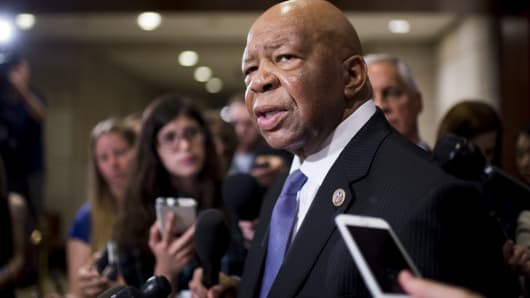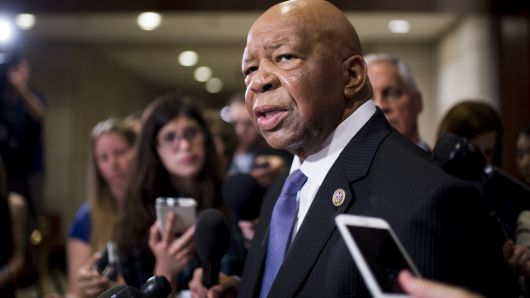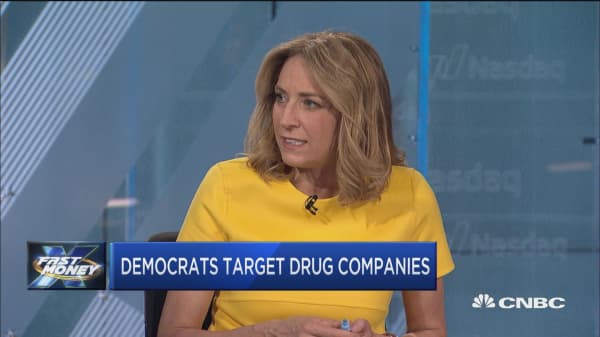
The House Oversight Committee is investigating the actions of a dozen pharmaceutical companies in raising prescription drug prices in the U.S., the panel announced Monday.
Chairman Elijah Cummings, D-Md., sent letters to AbbVie, Amgen, AstraZeneca, Celgene, Eli Lilly, Johnson & Johnson, Mallinckrodt,Novartis, Novo Nordisk, Pfizer, Sanofi and Teva Pharmaceuticalsseeking detailed information and documents about the companies’ pricing practices.
AbbVie and Sanofi received information requests regarding three of their drugs, the panel said. Amgen, Pfizer and Novo Nordisk received requests about two drugs. AstraZeneca, Celgene, Eli Lilly, Johnson & Johnson, Novartis, Mallinckrodt and Teva were each asked about one drug.
“For years, drug companies have been aggressively increasing prices on existing drugs and setting higher launch prices for new drugs while recording windfall profits,” Cummings said in a statement. “The goals of this investigation are to determine why drug companies are increasing prices so dramatically, how drug companies are using the proceeds, and what steps can be taken to reduce prescription drug prices.”
CNBC has reached out to the 12 companies for comment. CNBC has also reached out to the Pharmaceutical Research and Manufacturers of America, or PhRMA, the industry’s main trade group.
Amgen CEO Robert Bradway received a congressional letter from Cummings, a spokesperson for the company said, and is “reviewing the information requests contained in the letter and will respond accordingly.”
AstraZeneca, Novartis and Novo Nordisk also confirmed they received a letter and are reviewing the information. Celgene says it is aware of the inquiry and will cooperate with the committee, adding in part, “we believe no patient should be denied access to the treatments they need just because they can’t afford them.”
A spokesperson for Eli Lilly said the company “is committed to ensuring everyone living with diabetes has reasonable access to insulin, and we appreciate Congressional interest in this topic.” The company looks forward to “answering questions from the Committee,” they added.
Democrats, who regained control of the House this month, listed lowering prescription drug costs as one of their top priorities. Cummings, along with Sen. Bernie Sanders and Rep. Ro Khanna, D-Ca., introduced three bills last week aimed at lowering drug costs.
Spending on prescription drugs in the U.S. increased 0.4 percent in 2017 to $333.4 billion, according to the latest data from the Centers for Medicare and Medicaid Services. Lawmakers have largely been focusing on the pharmaceutical industry, which sells drugs at higher prices in the U.S. than abroad.
Pharmaceutical companies have argued price hikes have been modest, and have cited concern’s with the nation’s rebate system. Those are the discounts drugmakers give to middlemen such as pharmacy benefit managers, often in exchange for more favorable insurance coverage for their drugs.
President Donald Trump’s administration has also vowed to lower drug costs. The administration has several proposals that would offer lower out-of-pocket costs for American consumers, which include changes to Medicare Part D, the federal program for prescription drug benefits, and Part B. Medicare is the government insurer for the elderly and disabled.
[“source=cnbc”]

